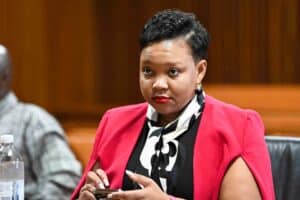Constitutional expert Shadrack Gutto said the party would be 'digging a hole for itself towards the 2019 elections' if Zuma becomes an MP.

The ruling ANC is struggling to shake off its Nasrec divisions as defiant Jacob Zuma supporters have nominated him for a parliamentary seat, a move that could pose a huge dilemma for the man himself.
If he accepts their nomination, he will give up his retirement presidential perks.
By nominating Zuma, the structures were seen as snubbing President Cyril Ramaphosa and the entire Nasrec leadership that defeated the Zuma camp by a small majority. This was also interpreted as a sign that some members did not accept the Nasrec outcome, nor Ramaphosa’s call for unity within the party. Should Zuma choose to accept the nomination, he would forfeit the benefits that he currently enjoyed as former president, including an annual salary of nearly R3 million and security apparatus provided to him by the state.
Also, if he became an ordinary MP, he would have to comply to parliamentary rules that included declaring his assets and financial interests. According to two sources, the Free State is among the provinces that had Zuma’s name on their lists. The sources said the province sold Zuma’s name to party structures prior to holding its provincial list conference on December 10. The province has yet to release its parliamentary and provincial legislature lists.
Constitutional expert Shadrack Gutto, professor at the Institute for African Renaissance at Unisa, has warned the ANC against allowing Zuma to return to parliament, as the party would be “digging a hole for itself towards the 2019 elections as Zuma is facing serious criminal charges, including corruption and money laundering”.
Besides, warned Gutto, that would set a dangerous precedent and “it is a matter that the ANC has to look at very carefully”. “This is desperate situation, the constitution has no provision for or against a former head of state to became a parliamentarian. If you do that you risk compromising yourself, because you have a hefty salary and perks, unless you relinquish all that and become an ordinary citizen.
“It is very risky, I hope those who advised him know that he can’t have it both ways,” Gutto said.
The talk of Zuma’s possible redeployment emerged as the ruling party was forced to take an unprecedented step to postpone its national list conference to January, due to infighting among members in the branch and provincial structures.
The ANC Western Cape’s list conference was nullified by Luthuli House after some angry members complained about irregularities and alleged corruption that occurred during the conference. The members claimed some names of candidates were excluded from the lists although they were nominated by structures.
Party secretary-general Ace Magashule ordered a re-run of the conference, which has since been re-scheduled for December 27. There was blood on the floor at the recent North West provincial list conference as supporters of the pro-Ramaphosa premier, Job Mokgoro, and those of former premier and ex-ANC chair, Supra Mahumapelo, fought over nominations.
The Free State, North West and Western Cape provinces were facing several hurdles around their list conferences, but the list processes went relatively smoothly in Gauteng, Limpopo, Mpumalanga, KwaZulu-Natal, Eastern Cape and Northern Cape. In the Free State, disgruntled ANC members were challenging the holding of list conferences until the legitimacy of the current provincial executive committee (PEC) was decided by courts.
The members went to court to challenge the PEC elections held in May at Emoya Estate. They claimed the provincial conference that elected them was unconstitutional and unprocedural and the PEC therefore illegitimate. A spokesperson for the disgruntled members, Monnapule Ntamo, vowed they would challenge Free State list conference and its outcomes.
KwaZulu-Natal appeared to be speaking with one voice behind Ramaphosa and his renewal and unity mission.
For more news your way, download The Citizen’s app for iOS and Android.
Support Local Journalism
Add The Citizen as a Preferred Source on Google and follow us on Google News to see more of our trusted reporting in Google News and Top Stories.








